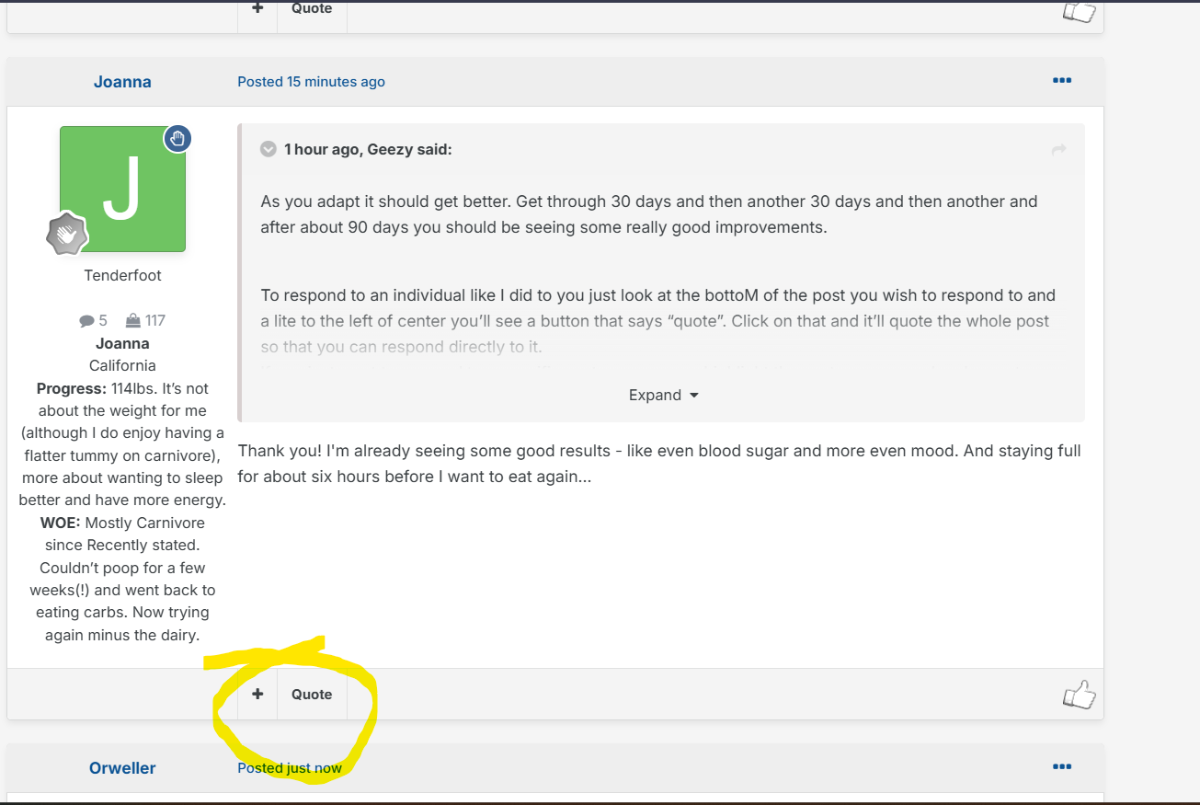6 popular peanut butters linked to colon cancerStory by Son of Grey Peanut butter is a staple in many households, loved for its creamy texture, nutty flavor, and protein content. However, not all peanut butter is created equal. Certain types of commercially processed peanut butter may contain added sugars, unhealthy oils, and chemical contaminants that studies suggest could increase the risk of colorectal cancer. Understanding which kinds to avoid can help you enjoy peanut butter safely while maintaining a healthy diet. Here’s a look at kinds of peanut butter linked to colon cancer risks. Peanut Butter with Added Hydrogenated OilsMany mass-market peanut butters contain hydrogenated oils to improve shelf life and prevent separation. These trans fats are widely linked to inflammation and increased cancer risk, including colon cancer. Common brands with older formulations that included hydrogenated oils include Skippy Creamy Peanut Butter and Jif Creamy Peanut Butter. While these brands have reformulated many of their products to remove partially hydrogenated oils, older stock and certain varieties may still pose risks. Peanut Butter High in Added SugarsExcessive sugar consumption has been associated with chronic inflammation and insulin resistance, factors that can contribute to colon cancer development. Many flavored or “sweetened” peanut butters—such as Reese’s Peanut Butter Spread or honey-flavored supermarket brands—contain high amounts of added sugar beyond what’s naturally in peanuts. These products are convenient for desserts and snacks but may carry hidden health risks when consumed frequently. Peanut Butter Contaminated with AflatoxinsAflatoxins are naturally occurring toxins produced by molds on peanuts, particularly if storage conditions are poor. Long-term exposure to aflatoxins has been linked to liver cancer and may contribute indirectly to colorectal cancer risk due to systemic inflammation and DNA damage. While major brands like Smucker’s Natural Peanut Butter and Planters Peanut Butter test rigorously for aflatoxins, lower-cost store brands or imported peanut butters may be more likely to contain small amounts of these toxins. Ultra-Processed Peanut ButtersUltra-processed peanut butters often contain a mix of additives, stabilizers, and preservatives that can affect gut health. Poor gut microbiome balance is increasingly recognized as a factor in colon cancer risk. Brands like Peter Pan Extra Crunchy or value-line supermarket peanut butters may include emulsifiers and stabilizers that are generally safe in small amounts but could have cumulative effects over time when consumed daily. Tips for Choosing Safer Peanut ButterOpt for natural or “just peanuts” varieties with no added hydrogenated oils or sugars. Check for aflatoxin testing or certifications from major brands. Store peanut butter properly in a cool, dry pantry or refrigerate to reduce mold growth. Moderate consumption to avoid excess calories, sugars, or unhealthy fats. While peanut butter can be a healthy protein and fiber source, products with hydrogenated oils, added sugars, aflatoxin contamination, or excessive processing may contribute to colon cancer risk. Choosing natural, minimally processed peanut butter from trusted brands like Smucker’s Natural, MaraNatha, or 365 by Whole Foods, and storing it carefully, can help you enjoy this classic snack safely and responsibly. ARTICLE SOURCE: https://www.msn.com/en-us/health/other/6-popular-peanut-butters-linked-to-colon-cancer/ar-AA1WvYFn?










Dementia is a debilitating condition that affects memory, cognition, and overall brain function. While many factors can contribute to the development of dementia, recent research has suggested a potential link between certain medications and an increased risk of developing dementia-related symptoms. It is important to note that these medications do not directly cause dementia, but they may be associated with an increased risk. This article will discuss ten medications that have been linked to dementia and some actionable steps to reduce the risk of developing this illness.
What Is Dementia?
Dementia is a general term that refers to a decline in cognitive function, including memory loss, impaired judgment and reasoning skills, and changes in personality. It is not a specific disease but rather a group of symptoms that many different conditions can cause. The most common form of dementia is Alzheimer's disease (AD), which accounts for 60-80% of all cases. Dementia is a progressive condition, meaning that it gets worse over time. The symptoms of dementia can vary depending on the cause and severity of the disease, but they generally include memory loss, confusion, difficulty with language or communication skills, and changes in personality or behavior.
The exact cause of dementia is still unknown, but it is believed to be caused by a combination of genetic, environmental, and lifestyle factors. The risk of developing dementia increases with age, with most cases occurring in people over 65 years old. While there is currently no cure for Dementia, there are treatments to help manage the symptoms. Recently, researchers have found that certain medications may contribute to the risk of developing the disease.
Medications Linked to Dementia
Medications are important and have helped many people to live longer happier lives. That being said, some medications have side effects or other negative impacts on health that we are only still discovering. One of these is their role in the risk of developing dementia. The following ten medications have been found to have a potential role in increasing dementia risk (1😞
1. Anticholinergics and Antihistamines
This class of medications is commonly prescribed for various conditions such as allergies, overactive bladder, and depression. An example of this would be the common anti-allergy drug, Benadryl. Research suggests that long-term use of anticholinergic drugs may be associated with an increased risk of dementia. It is advised to explore alternative treatment options or speak with a healthcare professional to manage these conditions without relying on anticholinergic drugs. (2, 3)
Certain over-the-counter antihistamines, including diphenhydramine, have been associated with an increased risk of developing dementia. It is recommended to limit the use of these medications, especially in older adults, and consider alternative options for managing allergies or sleep issues.
2. Benzodiazepines
These medications are often prescribed as sedatives or muscle relaxants. Studies have found a potential link between long-term benzodiazepine use and an increased risk of dementia. If possible, it is recommended to explore non-pharmacological approaches or consider alternative medications with fewer side effects.
3. Proton Pump Inhibitors (PPIs)
PPIs are commonly prescribed for acid reflux and stomach ulcers. While PPIs are generally safe for short-term use, long-term use has been associated with an increased risk of cognitive decline and dementia. It is advisable to use PPIs only when necessary and for the shortest period possible.
4. Antidepressants
Certain types of antidepressants, such as tricyclic antidepressants (TCAs), have been linked to a higher risk of dementia. However, the risk appears to be relatively small and varies depending on individual factors. It is important to discuss the potential risks and benefits of antidepressant use with a healthcare professional. (4)
5. Antipsychotics
These medications are commonly prescribed for conditions like schizophrenia and bipolar disorder. While antipsychotics can be beneficial for managing severe mental illnesses, long-term use has been associated with an increased risk of cognitive decline and dementia. It is essential to regularly review and reassess the necessity of antipsychotic medications and explore non-pharmacological interventions whenever possible.
6. Sleeping Pills
Medications commonly used to treat insomnia, such as zolpidem and zaleplon, have been linked to an increased risk of dementia. It is advisable first to explore behavioral and lifestyle changes to improve sleep quality before considering medication options.
7. Statins
Statins are widely prescribed to lower cholesterol levels and reduce the risk of cardiovascular diseases. There is some evidence suggesting that statin use may be associated with a higher risk of dementia. However, the benefits of statins in preventing heart disease often outweigh the potential risks. It is crucial to have an informed discussion with a healthcare professional regarding the benefits and risks of statin use.
8. Pain Medications
Pain medications are commonly used to treat chronic pain. There is some evidence suggesting that long-term use of opioids may increase the risk of dementia. However, the benefits of pain relief often outweigh the potential risks. It is crucial to have an informed discussion with a healthcare professional regarding the benefits and risks of opioid use. NSAIDs have also been found to increase the risk of dementia. The risk will depend on how often you have to use them. Again, the benefits of pain relief are likely more impactful on your health than the risk of dementia, so speak with your doctor if you have concerns.
9. Medications for Bladder Control
Some medications used to manage overactive bladder, such as oxybutynin, have been linked to an increased risk of dementia. It is advisable to explore non-pharmacological approaches, behavioral modifications, or alternative medications with fewer cognitive side effects.
10. Corticosteroids
Long-term use of corticosteroids, commonly prescribed to manage conditions like asthma, arthritis, and autoimmune diseases, has been associated with an increased risk of cognitive decline and dementia. It is important to use corticosteroids at the lowest effective dose for the shortest duration possible.
Reducing the Risk of Developing Dementia
While the above medications have been associated with an increased risk of dementia, it is essential to note that individual responses to medications may vary. To best try and reduce the risk of developing dementia for those taking these medications, consider the following actionable steps (5😞
General Dementia Prevention Strategies
While medication-related cognitive decline is one aspect of dementia risk, there are several general strategies that can help reduce the overall risk of developing dementia:
By following these actionable steps and general dementia prevention strategies, individuals can potentially reduce their risk of developing dementia, especially when medication use is a concern.
It is important to note that the relationship between medications and dementia risk is complex, and individual factors can significantly influence the level of risk. Therefore, it is crucial to consult with healthcare professionals for personalized advice and guidance regarding medication use and dementia prevention.
Sources
"How can I reduce the risk of dementia?" Alzheimer
Disclaimer: This information is not intended to be a substitute for professional medical advice, diagnosis or treatment and is for information only. Always seek the advice of your physician or another qualified health provider with any questions about your medical condition and/or current medication. Do not disregard professional medical advice or delay seeking advice or treatment because of something you have read here.
The post 10 Medications Linked to Dementia appeared first on The Hearty Soul.
ARTICLE SOURCE: https://theheartysoul.com/medications-and-dementia-risk/
Subscribe to Carnivore Talk on YouTube | Be our guest on the channel | Leave me a voicemail, yo!